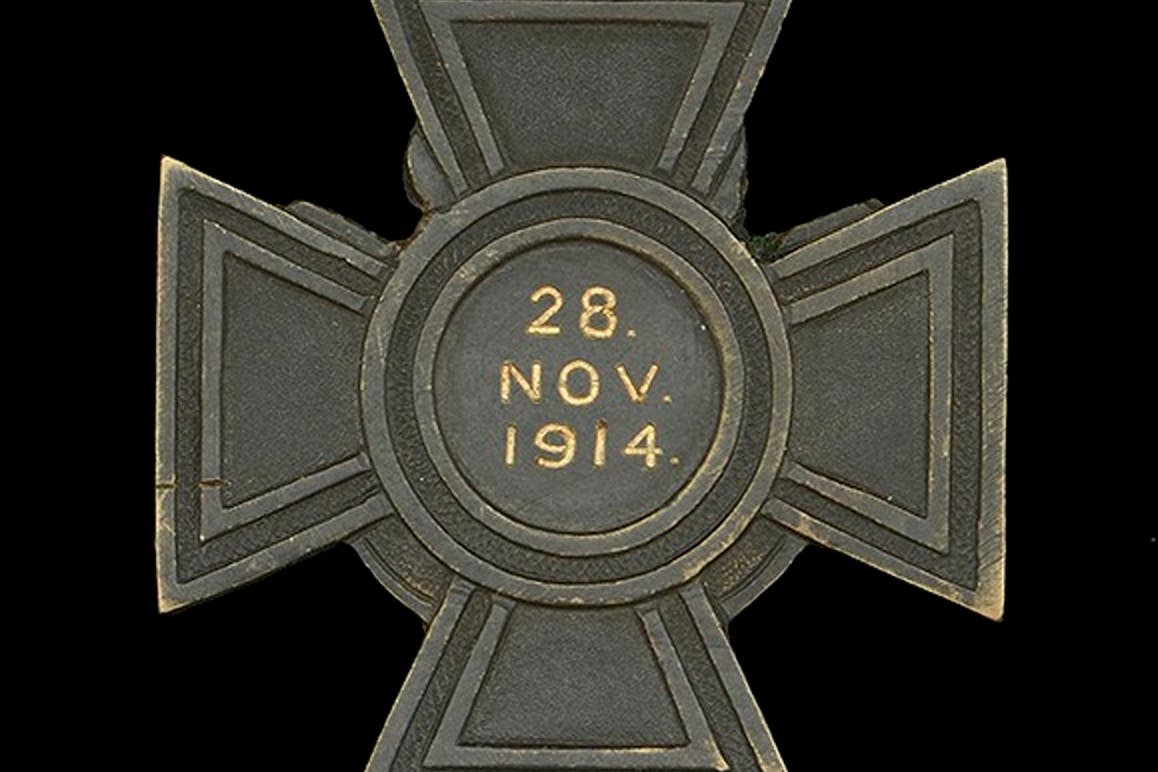First naval Victoria Cross of First World War could fetch £260,000 at auction
The medal was awarded to Captain Henry Peel Ritchie, of the Royal Navy.

Your support helps us to tell the story
From reproductive rights to climate change to Big Tech, The Independent is on the ground when the story is developing. Whether it's investigating the financials of Elon Musk's pro-Trump PAC or producing our latest documentary, 'The A Word', which shines a light on the American women fighting for reproductive rights, we know how important it is to parse out the facts from the messaging.
At such a critical moment in US history, we need reporters on the ground. Your donation allows us to keep sending journalists to speak to both sides of the story.
The Independent is trusted by Americans across the entire political spectrum. And unlike many other quality news outlets, we choose not to lock Americans out of our reporting and analysis with paywalls. We believe quality journalism should be available to everyone, paid for by those who can afford it.
Your support makes all the difference.A Victoria Cross won by a sailor in the First World War could fetch up to £260,000 when it goes under the hammer later this month.
It was awarded to Captain Henry Peel Ritchie, of the Royal Navy, who was born in Edinburgh, for his gallant command of HMS Goliath’s steam pinnace at Dar-es-Salaam in east Africa on November 28 1914.
Capt Ritchie, then 38, was wounded eight times in 20 minutes as he steered the pinnace to safety from the port, which was then under German rule.
His medal is one of 250 being sold at Noonans Mayfair during an auction on July 23, with the collection expected to fetch in the region of £2 million.
The medals were collected by Jason Pilalas, from Connecticut, who died last year, and served as an officer in the United States Navy, completing three tours of Vietnam.
Nimrod Dix, deputy chairman of Noonans, said: “When the pinnace came under a withering fire, 38-year-old Ritchie took over the wheel from his wounded coxswain and steered for the harbour’s entrance, but it took 20 minutes to get clear, in which period he was wounded eight times – on the forehead, in the left hand, twice in the left arm, in his right arm and hip and, finally, by two bullets through his right leg.”
He was not only a man of many talents, but he was also a man of many interests, none more so than his relentless pursuit of knowledge of all things relating to the Royal Navy
Mr Ritchie, who was promoted to Captain on the retired list in January 1924, lived at Craig Royston in Edinburgh and died there aged 83 on December 9 1958.
The medal collection, which covers 200 years of naval history, also includes 10 medals awarded to Lieutenant Commander William Ewart Hiscock, of the Royal Navy, who was born in Dorchester, Dorset, in 1886.
His medals are estimated to fetch between £80,000 and £120,000.
Mr Dix described how the controlled mining officer, serving at HMS St Angelo in Malta, dealt with 125 “incidents” at the height of the island’s siege.
Lt Cmdr Hiscock and his wife were killed in a bombing raid on Valetta in February 1942 – just a few days after it was announced that he had been awarded the George Cross.
King George VI presented the medal to one of the hero’s daughters at Buckingham Palace on June 23 1942.
Describing medal collector Mr Pilalas, Mr Dix said: “He was not only a man of many talents, but he was also a man of many interests, none more so than his relentless pursuit of knowledge of all things relating to the Royal Navy, this voracious appetite for knowledge being matched only by his seemingly unquenchable thirst to collect objects relating to his passion.
“However, as much as Jason cherished his collection, he was always mindful of the fact that he was just the custodian of these objects in his own lifetime.”